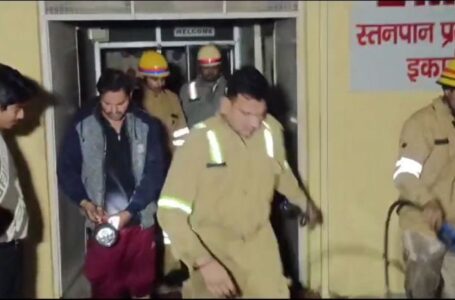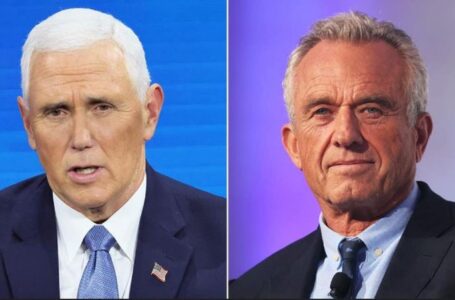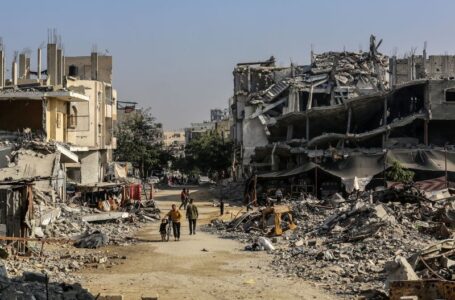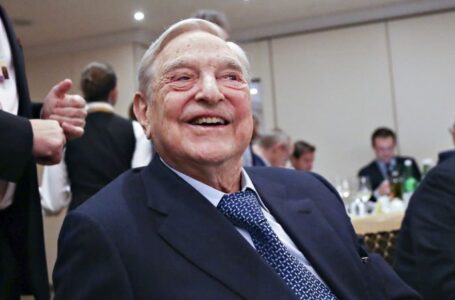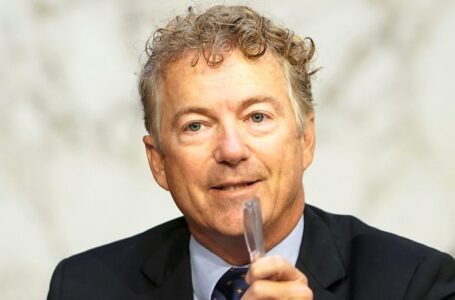French voters head to polls for crucial second round of snap parliamentary election
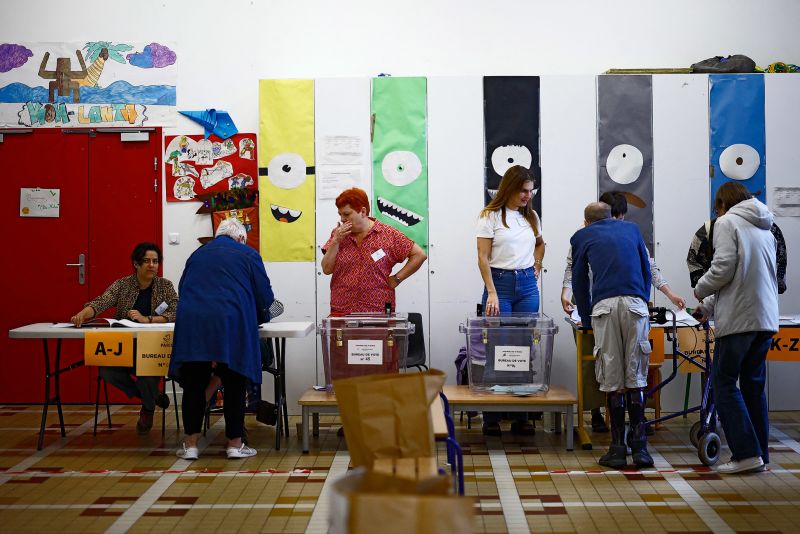

Voters are heading to the polls across France to vote in the second round of a snap election called by President Emmanuel Macron, who risks losing swaths of his centrist allies in parliament and being forced to see out the remaining three years of his presidential term in an awkward partnership with the far right.
After taking the lead in the first round of voting last Sunday, the far-right National Rally (RN) – led by the 28-year-old Jordan Bardella under the watchful eye of party doyenne Marine Le Pen – is closer to power than ever before.
The RN, whose once-taboo brand of anti-immigrant politics has been given a fresh and more acceptable face by Bardella, won 33% of the popular vote in the first round. The newly-formed left-wing coalition, the New Popular Front (NFP), came second with 28%, while Macron’s Ensemble alliance trailed in a distant third with 21%.
But the prospect of a far-right government – which would be France’s first since the collaborationist Vichy regime during World War II – has spurred Ensemble and the NFP into action. After a week of political bargaining, hundreds of candidates stood down in particular seats to try to deny the RN an absolute majority.
Voting began at 8 a.m. local time (2 a.m. ET), as France began the process of electing the 577 members of its National Assembly, in which 289 seats are needed for a party to hold an absolute majority. In the outgoing parliament, Macron’s alliance had only 250 seats, and so needed support from other parties to pass laws.
Only those who win more than 12.5% of the votes of registered votes in the first round can stand in the second, meaning it is often fought between two candidates. But this time a record number of seats – more than 300 – produced a three-way run-off, in a measure of France’s polarization. In an attempt not to split the anti-far right vote, more than 200 candidates from Macron’s alliance and the NFP agreed to stand down in the second round.
While RN’s strong showing in the first round means it could more than triple the 88 seats it had in the outgoing parliament, it is not clear if it will be able to reach an absolute majority. Although it is customary for the president to appoint a prime minister from the largest party, Bardella has repeatedly said he will refuse to form a minority government.
In that case, Macron might have to search for a prime minister on the hard left or, to form a technocratic government, somewhere else entirely.
Whatever the result of Sunday’s vote, France seems set to endure a period of political chaos, with Macron unable to call another parliamentary election for at least a year.
The campaign has already been marred with violence. Interior Minister Gerald Darmanin said Friday that 51 candidates and campaigners had been assaulted on the campaign trail, leading to some being hospitalized.
The vote is being held three years earlier than necessary. France was not due to hold parliamentary elections until 2027, but Macron called the snap vote – the first time a French leader has done so since 1997 – after his party was trounced by the RN at last month’s European Parliament elections.
Although the European election results need have no bearing on domestic politics, Macron said he could not ignore the message sent to him by voters and wanted to clarify the situation.
Some have argued that, with the possibility of the RN winning both the presidency and the parliament in 2027, Macron was keen to expose it to government beforehand, in the hope that it would lose its appeal once in office. If the RN refuses to form a minority government, Macron’s gamble could backfire.
An RN-led government would have huge implications for France and the rest of Europe. Its spending plans – which include cutting value-added tax on electricity, fuel and other energy products – have alarmed financial markets and could put France on a collision course with Brussels’ restrictive spending laws.
On the continental stage, an RN-led government would further Europe’s rightward shift, at a time when the center is trying to remain united on issues like support for Ukraine, migration and climate change.
Standing between the RN and an absolute majority is the NFP, comprising more radical figures like Jean-Luc Melenchon, a three-time presidential candidate and leader of the France Unbowed party, as well as moderate leaders like Place Publique’s Raphael Gluckmann.
While Macron’s Ensemble allies said they will do everything in their power to stop the RN coming to power, it has refused to collaborate with or endorse candidates from France Unbowed. Gabriel Attal, Macron’s protege and the outgoing prime minister, has vowed never to enter into alliance with Melenchon.
Polls will close at 8 p.m. local time (2 p.m. ET) Sunday, with the full results expected early Monday.

